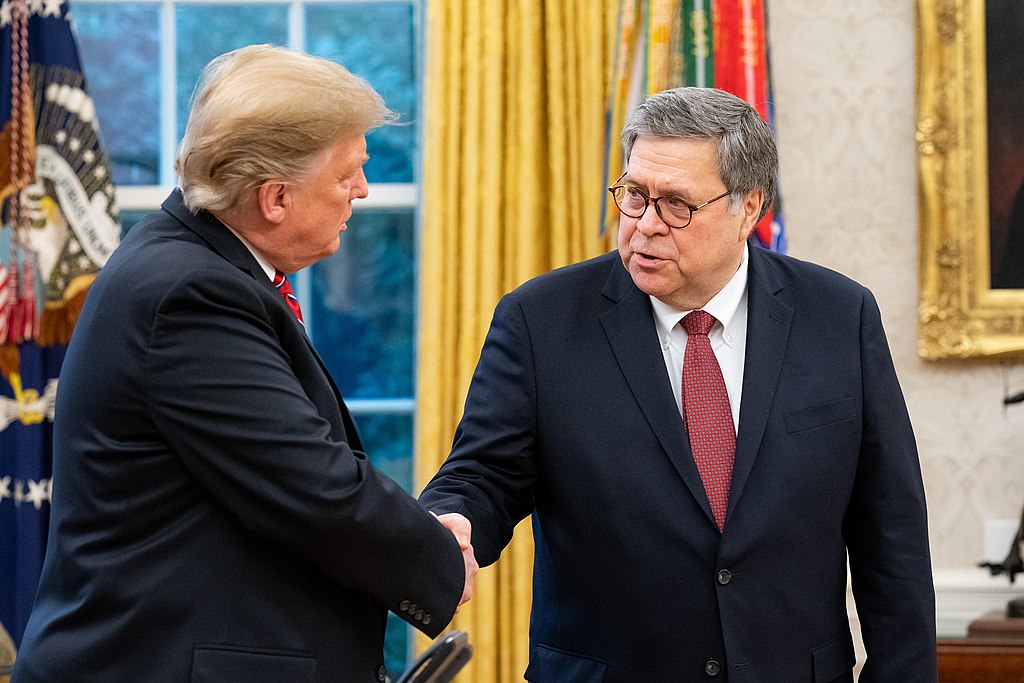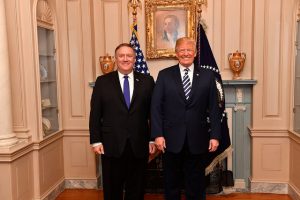by Paul R. Pillar
The selective release of classified information from U.S. intelligence agencies has long been a favorite way for administrations to make a public case amid doubt or controversy. Raw intelligence lends a cachet of seriousness and authenticity even if the intelligence in question did not drive or underlie any presidential decisions. The administration of the day—with the president having the ultimate power to determine what will be declassified and what won’t—can release whatever seems to support its case and withhold whatever tends to refute it. The intelligence agencies, even if they see a different and more complete picture than what is being portrayed publicly, are largely powerless to do anything to counteract such a ploy. For the agencies to make their own release of offsetting classified information would be seen as insubordination and would be contrary to the professional ethics associated with their mission.
Past administrations have used selective release of intelligence to rationalize going to war in Vietnam in the 1960s and in Iraq in 2003. Secretary of State Mike Pompeo clearly was gearing up to repeat one of the ploys used to sell the Iraq War—propounding the notion that the targeted regime was an ally of al-Qaeda—when rebuffing arguments that congressional approval would be required to launch a war against Iran. The notion of being in cahoots with al-Qaeda is just as incorrect when applied to Iran as it was with Iraq. The ploy seems to be shelved for now as President Trump has overruled war-hungry subordinates.
A higher priority for Trump has been to discredit investigations into the Russian interference in the U.S. election that helped to elect him in 2016. “Witch hunt” has been one of the dominant rhetorical themes of Trump’s presidency. The latest significant step in Trump’s campaign of discreditation has been to direct Attorney General William Barr to investigate the investigators and to give Barr unilateral authority to declassify whatever documents he wants from the intelligence agencies.
This particular grant of declassification authority is noteworthy not only because it gives to Barr a function that, if it is to be performed at all, rationally would be part of the job of intelligence agency heads or the director of national intelligence. The move also illustrates Trump’s priorities. Whatever risks involved in releasing what is normally classified information are to be taken not to protect the nation from, in the words of Special Counsel Robert Mueller, “multiple, systematic efforts to interfere in our election,” a matter that “deserves the attention of every American.” Instead, the risks will be taken to discredit an investigation into that very interference.
In William Barr, Trump has a subordinate evidently fully committed to the discreditation effort. If there were any doubt about Barr’s intentions after his misrepresentation of Mueller’s report and his use of the intentionally derogatory term “spying” to describe an FBI investigation, the doubt should have been removed by his recent interview with CBS, in which he performed a role barely distinguishable from that of Trump’s personal attorney Rudolph Giuliani.
Nothing has so far emerged publicly to indicate that the FBI investigation in question was anything other than what it should have been: a counterintelligence inquiry into Russian interference in a U.S. election campaign. Nothing has emerged to falsify former FBI Director James Comey’s description of the sequence of events leading to the investigation. What is especially bizarre about the suggestion of a politically motivated “spying” effort against the Trump campaign is that no fruits from the supposed spying were ever used to hurt Trump’s election effort. To the contrary: while the multiple connections between Russia and the Trump campaign that the FBI was investigating were kept tightly under wraps, the only politically significant output from the FBI during the election season was Comey’s eleventh-hour statement about resuming an inquiry into Hillary Clinton’s emails—a move that helped Trump and infuriated Democrats.
Some commentary since Trump’s grant of declassification authority to Barr has focused on the need to protect intelligence sources and methods and on the question of how intelligence chiefs will respond if they are told to release information that might endanger those sources and methods. This ought not to be the main worry. For one thing, there is so far no indication that responsible officials such as Director of National Intelligence Dan Coats and CIA Director Gina Haspel have bought into the “witch hunt” notion and every reason to expect that they will do what they can to protect what needs to be protected.
Moreover, Trump’s and Barr’s purposes will not be served by, say, revealing or endangering some Russian source. Although those purposes represent as much of a perversion of the intelligence-policy relationship as does previous cherry-picking to sell a war, this time the selective revelation of intelligence will be different. Rather than having an incentive to reveal juicy reports suggesting that a foreign power was doing something bad, Trump’s and Barr’s objective is to suggest that whatever Russia was doing was not so bad, or at least did not reach so extensively into a U.S. political campaign as to warrant a full investigation.
It is easy to anticipate how the cherry-picking in this instance may work. Internal communications among FBI officers expressing dislike for Trump get released, but documents showing that such opinions had no effect on the performance of official duties do not. Raw intelligence that turns out to be of questionable authenticity gets released, while the full range of leads that justified an investigation—including more solid reporting—does not.
When the administration plays such a game, officials such as Coats and Haspel will have a harder time affecting the game by claiming the need to protect sources and methods. It’s the crummy reporting—the kind that suggests the counterintelligence investigation was poorly grounded—that Trump and Barr are most likely to make public. Whatever better reporting there has been—the kind that would give good insight into what the Russians are up to and where protection of sources is most important—Trump and Barr would not want to release anyway.
The resulting distorted picture given to the public will inaccurately portray why the counterintelligence investigation was initiated and will suggest to the public that, with weak grounds for such an investigation, it must have been politically motivated. Any corrective to this process lies with the intelligence oversight committees in Congress. Fortunately, some members of those committees have anticipated the game and called on the intelligence community to keep them well enough informed to be able to monitor the investigation of the investigation.





